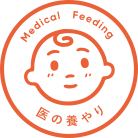People often say that drinking a cup of milk before bedtime is beneficial for sleep, but there are some nuances about when to drink it. Drinking milk right before falling asleep is not the most appropriate time.
The correct way is to drink milk half an hour to one hour before falling asleep, rest for a while, and then go to bed. This is more beneficial for digestion and sleep.
If a baby drinks milk and falls asleep while lying in bed, it eliminates the need for brushing teeth. However, infant formula contains a large amount of sugar, and milk residues will remain on the teeth for a long time. When oral bacteria decomposes sugars, it produces acidic substances, which can damage the teeth.
In addition, using newborn anti-colic bottles, babies tend to stretch their chins, which can cause the lower teeth to cover the upper teeth, a condition known as "buck teeth." This can affect the baby's appearance.
Since lying in bed to drink milk after the age of two and a half has so many negative effects, how can parents help their babies quit using pacifiers? Here are two tips.
Avoid drinking milk before bedtime
As the baby grows up, it is not necessary to drink milk before falling asleep. You can do other things instead, such as listening to stories from parents, tidying the bed together, or chatting with them. This can reduce the baby's dependence on the silicone soother and help them fall asleep quickly.
Train the baby to drink milk from a cup
Most babies are curious about new things, so parents can buy cute cups or training cups and try to train them to sit and drink milk from a cup. At first, you can try to use a straw cup and gradually switch to a regular cup.
This training can be done several times a day, but it is better to do it half an hour or an hour before bedtime. After drinking milk, help the baby brush their teeth or rinse their mouth, and then go to bed.
During this training process, parents should gradually reduce the use of the silicone soother, such as changing to using them twice a day first, and then reducing to once a day.
Maybe the baby will miss their pacifiers, but they cannot always use a bottle to eat. Changing the way of eating is a necessary process, and when necessary, parents need to be tough and help the baby quit using pacifiers.
Quitting pacifiers for children is not an easy task, so sometimes parents may try some strange methods. However, there are some methods that parents should not try, such as:
Do not compare with other children
For example, telling the baby, "Look at other kids, they don't do this. You look ugly doing it." This could hurt the baby's fragile psyche and is unnecessary.
Do not apply anything to the soother
Some mothers may apply substances such as rhubarb or chili oil to their breasts when weaning their babies, trying to make them disgusted and stop using pacifiers. They may also apply something with an unusual smell to the pacifier to help quit it. However, this method may not be effective and may have negative psychological effects, which is not helpful.
Do not use punishment
For babies who are stubborn and have a strong dependence on pacifiers, parents may easily lose their patience and use punishment, such as forbidding the baby to use pacifiers, scolding them if they disobey, or even hitting them. This is not a wise move because quitting using the silicone soother takes time, and forced prohibition can only create a sense of rebellion.













